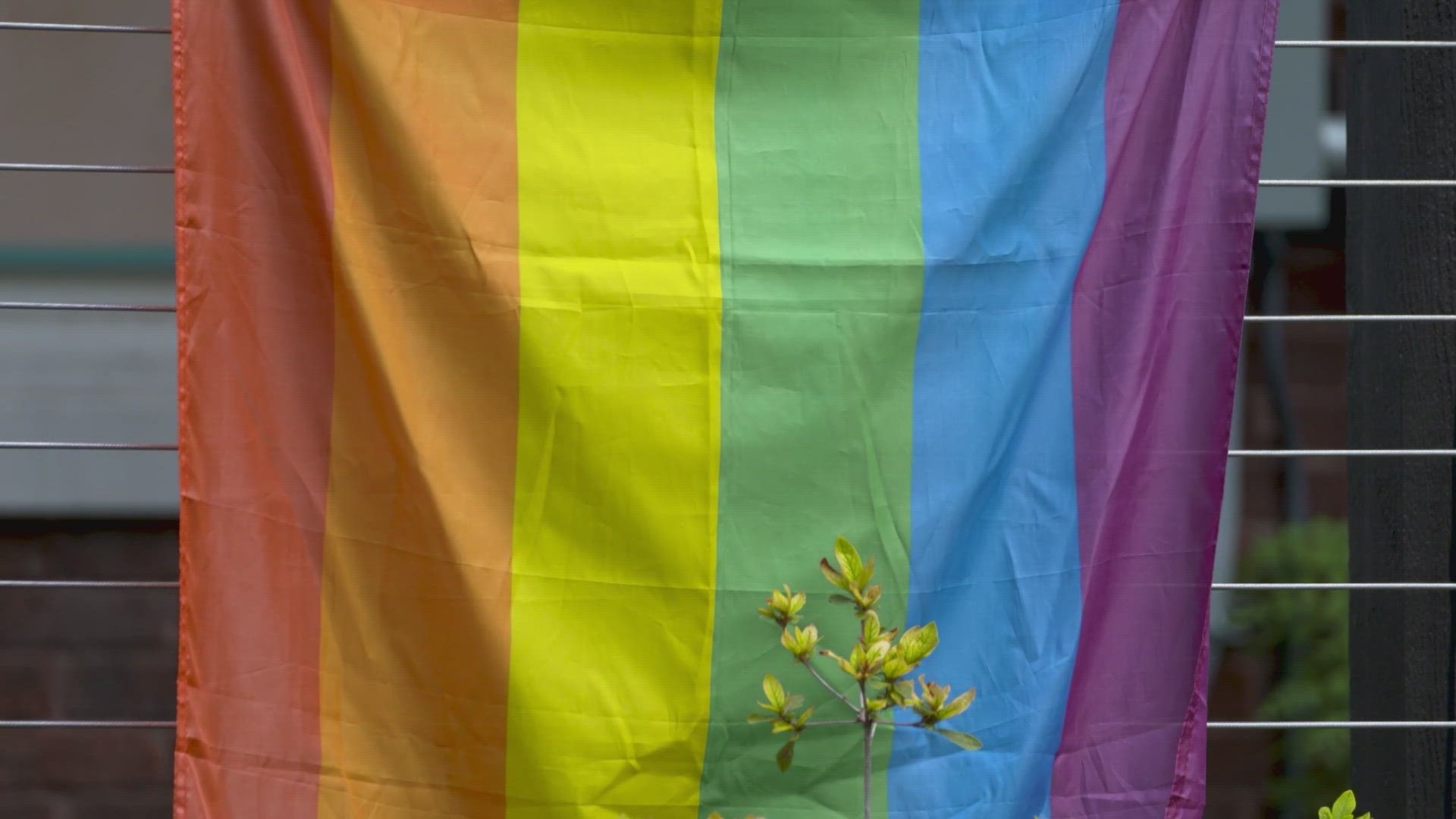DALLAS — NOTE: The following report focuses on mental health crises among the LGBTQ+ community. Details may be triggering to some.
A conversation in a coffee shop, for some, feels like a safer place than a classroom to discuss LGBTQ+ matters in Texas.
High school graduate Dylan, who we are only referring to by her first name, said her other LGBTQ+ friends were supposed to join her for a roundtable discussion.
"Even with the ones whose parents were very accepting, their parents were scared that if they did this that people would try and find them, try and hurt them and try and ruin their lives,” said Dylan.
A surge of bills aimed at taking away resources and spaces for individuals in this community surfaced in this past legislative session.
Some bills were signed, some failed. But the rhetoric demanding lesbian, gay, bisexual and transgender folks has shot up in homes across our area.
Dylan said this has been a tough time for her and her friends.
“I've heard my friends talk seriously about like, 'If things get, bad this is where I am going,' or, 'I'm going to school in this state for college because I feel like it will be safer there,'” said Dylan.
A study of more than 28,000 LGBTQ+ young people (ages 13 to 24) released by the Trevor Project, a non-profit focused on suicide prevention for the LGBTQ+ community, found:
- Nearly 2 out of 3 LGBTQ young people said that hearing about possible local and state laws banning people from discussing LGBTQ people at school made their mental health a lot worse.
- 41% of LGBTQ young people seriously considered attempting suicide in the past.
- Of the younger teens (13-17 years old) in the study, 17% actually attempted ending their life.
"Knowing that those thoughts go through their mind every single day and so we just try to get them the help that they need, really,” said Lauren Veatch, the Family & Community Services Manager of the Resource Center. "Seeing them struggling is hard. It's just hard to watch.”
Veatch works directly with teens at the Resource Center in Dallas. She says if a key component to a vulnerable child's happiness and fulfilling future is their deepest secret one that is but publicly chastised hope can disappear for them.
"If one person, one adult in a youth's life who is supportive of their identity and who they are, [it] makes a world of difference for them,” said Veatch.
The Resource Center offers programming for both youth and adults, therapy sessions and healthcare.
And although things feel tough right now folks like Dylan with a strong support system are optimistic.
“Things used to be way worse 100 years ago. They got better. Now, they're dipping back. So I'm hoping that everything will improve again eventually, especially with my generation."

